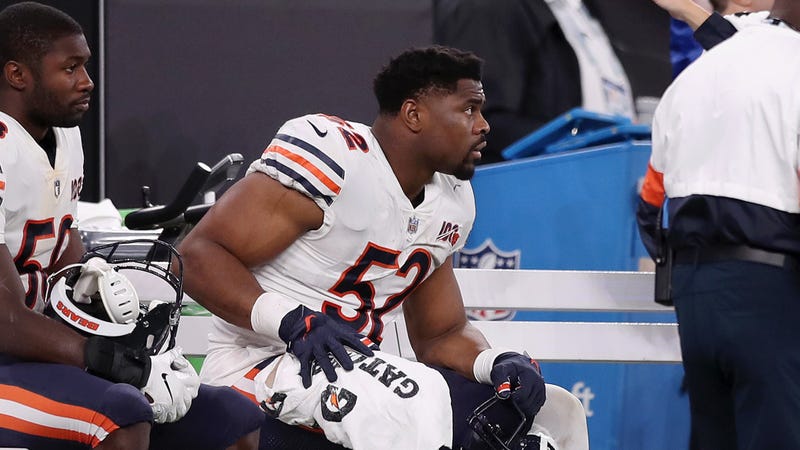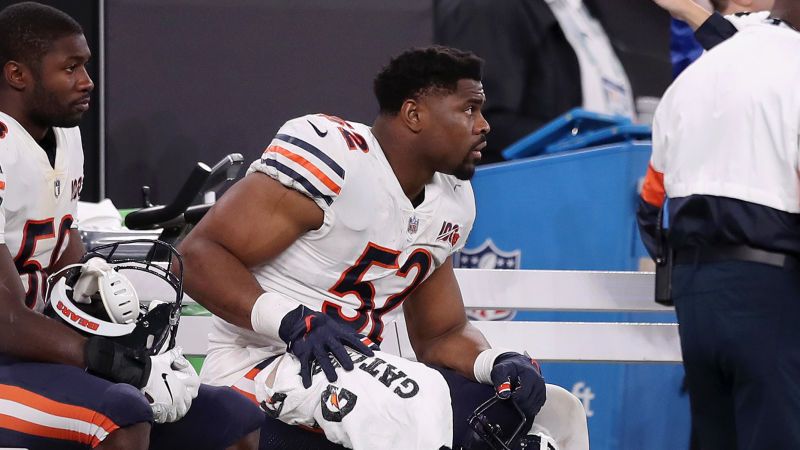
For those who revel in the schadenfreude that the failures of Jon Gruden tend to provide, Sunday’s Bears-Raiders game was a big moment as it was the first time Khalil Mack would face off against his former team. Yet the narrative of the Mack trade constantly blowing up in Gruden’s face had to be put on hold, as the Oakland offensive line did an excellent job making one of the league’s best defensive players nearly a non-factor. It was clear early that the goal of the game for that group was to at the very least beat the shit out of Mack whenever they got the chance. On the first play of the game, for example, Oakland fiercely triple-teamed the defender in a way that resembled a group of bullies jumping a school’s awkward new kid.
Luckily for Gruden’s guys, the strategy served more than a superficial purpose. The Raiders’ offensive line thoroughly dominated everyone Chicago had on the defensive front, and, to paraphrase a line from Dennis Green, it made the Bears look like the opposite of who people thought they were.
Advertisement
The big O-line day also helped the rushing attack on an individual basis, with Josh Jacobs passing Marcus Allen for most rookie rushing yards through five games in team history.
But the biggest victory for the Raiders wasn’t the statistical output, or the pancakes they were able to pull off on the field. No, what they’re probably most proud of is the fact that they beat up Mack into a stunned silence.
Advertisement
Mack isn’t exactly someone who finds himself at a loss for words often. Just last week, he made headlines when he offered the following as summary of Chicago’s win over Minnesota: “A dog that poops fast don’t poop for long, man.” The defender even offered an explanation later in the week to show that he’s not the type of person to just drop those faux-deep quotes and walk away. But there was no colloquialism today, as any desire to offer one apparently was beaten out of him.
To give Mack some credit, though, it’s hard to imagine any defender wanting to answer questions about how a Tom Cable-coached offensive line was able to stop them.













